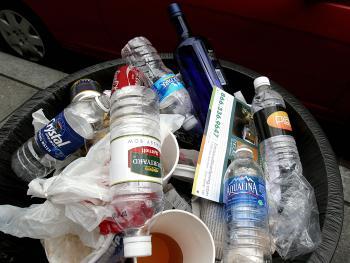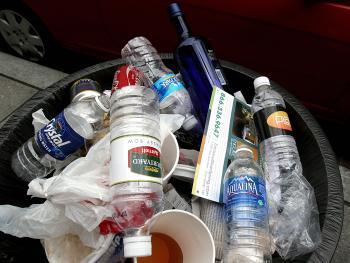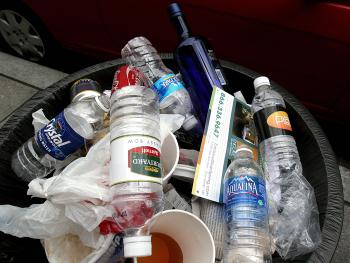According to the Think Outside the Bottle Campaign, “Bottled water corporations use clever marketing and misleading advertising that makes people doubt the safety and quality of their own tap water. In reality, bottled water is less regulated than public water systems.”
A study done by the Natural Resources Defense Council (NRDC) in 1999 tested more than 1,000 bottles from 103 different bottled water brands nationwide. It found that one-third of the tested water contained arsenic, synthetic organic compounds, and bacteria—making it no cleaner than tap water.
“There’s much to improve on what’s going on out there today,” said Joe Jajati, the CEO of Skywater.
Having seen some major flaws in the water industry, Jajati started Skywater in 2007. The New York-based company installs home water purification systems that remove chemicals and sediment that are unreachable by most other systems.
“I got into the business to let people know that there’s a better alternative for your health, there’s a better alternative for the environment, and it also saves people a lot of money,” Jajati said.
Drinking two liters of bottled water adds up to an estimated $1,400 a year. The bottled water industry also burns 47 million gallons of fossil fuels each year to produce its plastic bottles, according to the New York City 2007 Drinking Water Supply and Quality report.
Another 450 million gallons of oil are used each year to transport bottled water.
Several U.S. cities have banned the use of bottled water and large water cooler containers in public sector offices. Illinois was the first state to enact the ban, and just this week, New York also enacted the ban. Such measures have already been enacted in several cities in Canada.
Jajati further explained some of the flaws in bottled water and large water cooler containers. Aside from the cost and environmental impact, another problem is chemicals that leak from the plastic. “I still think you’re better off drinking tap water than drinking out of those five-gallon plastic bottles,” Jajati said, adding that they often sit on trucks in the heat and cold, which further leaks chemicals from the plastic.







